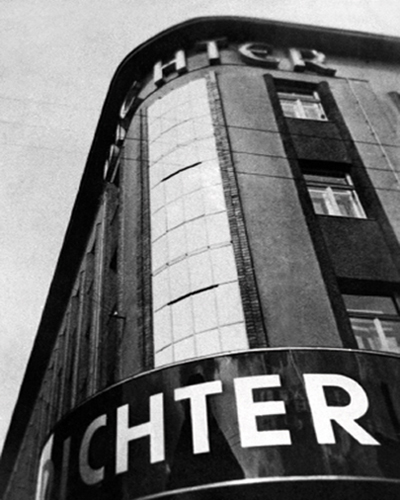1160 vienna, brunnengasse 40
the warenhaus dichter was founded by leopold dichter around 1890. by the 1930s it had become the biggest retail store outside vienna’s gürtel (belt road). it was modernised in 1935 by philipp diamantstein, who had an office together with his partner clemens holzmeister.
until the nationalist socialists seized power, the retail store was run as a limited commercial partnership family business. in 1938, it was put under provisional administration by arthure lohre. it was aryanised by the owner of a bank, edmund topolansky, who acquired the store for less than a third of its real value. even this purchase price wasn’t paid out of topolansky’s own pocket, but from the profits of the business itself. it remained in his possession until 1949. the thriving store and the business assets were used to balance his bankrupt bank. as a result of restitution proceedings from 1949 to 1951, the shop was sold at a very low price to oskar seidenglanz; like topolansky, he had been an aryaniser – in this case, of a shop in the 20th district of vienna. under the name of osei (the contraction of “oskar seidenglanz”), the store could be found at the brunnenmarkt until 2003/04.
between 2005 and 2007, the building was used as a temporary art space by the masc foundation, which organised four exhibitions there. the last one was the “sammlung dichter” (“dichter collection”), a tribute and a present to the dichter family. it has been available be on-line from october 5th, 2007. the final demolition of the building took place in march/april 2007.
about the dichter family
the dichter family might be called a typical middle-class jewish family in vienna at the beginning of the 20th century. they run the retail store as a family business – with 6 family members involved – and were very much interested in culture and arts. on high holy days they went to the synagogue, but were otherwise not very religious. the children received a good education, distant relations were provided for – for example, ernest dichter. the upper floors of the store were at the same time the apartments of some of the family members.
